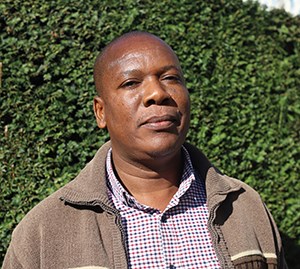Contact
Department of People and Society

Dr David Mirera, Principal Research Scientist working for Kenya Marine and Fisheries Institute.
What is your vision for a sustainable aquatic food system?
It is important to recognize that aquatic food systems are very significant food systems that have not received a lot of popularity over the years. Aquatic food systems are crucial for old people and children for purposes of nutrition. If they can access aquatic foods to improve their nutrition that's very significant. But we still don't have enough production of aquatic foods in Kenya. Even though the government has really pushed that since 2009 when we started getting economic stimulus for example, programs that ensured construction of fishponds in different areas. But many fishers are not consuming the fish that they catch. Instead, they sell it for money, and they find their families are still lacking the necessary nutrition. Apart from enhancing production, we need to create awareness on consumption of aquatic foods. That is very critical.
What do you see as the main needs to achieve this?
To be able to achieve these objectives of the aquatic food system there must be a network with a structure and a strategy. And initially there must be resources. With a clear strategy the network should then be able to attract resources either from the members or from other partners. When the network stands it's a force to reckon with, that can champion the needs of the network members.
We have discussed quite a few things in the workshop, but moving forward is one of the critical aspects. There must be a buy in of this network intervention, for example from the EU. To indicate that this is a noble idea, and that maybe there could be some seed funding for it. Once that is done, there must be a lot of mobilization and awareness creation among the aquatic food producers and trade organizations at the national and local level. Another aspect is to have a pool of experts during the initial stages, a pool of experts that don't have any conflict of interest. With whatever structures are existing in a country.
What do you take with you from this science policy lab?
I take quite a few things with me. The approach of how you involve people when you are making decisions, that's very key. Mostly policies are developed from a top-down approach, but the way this lab works is that there is a key essence of starting the development of policies from where the people are. And then trying to see what works for them and moving them up the pillar giving more power to the people. Another thing is on inclusion. And the role of gender when it comes to decision making. How do you empower everybody? Ensure that everybody has equal opportunity to be able to contribute to the decision making process. That's very key.
But of course, the bottom line is the significance of aquatic food systems in the global, national and local perspective, which needs to be promoted and popularized for the well-being of society.
The interview was made during the Global Science-Policy Lab on Aquatic Food Systems in Brussels 3-4 March 2025 (SASi-SPi project funded by the European Union).